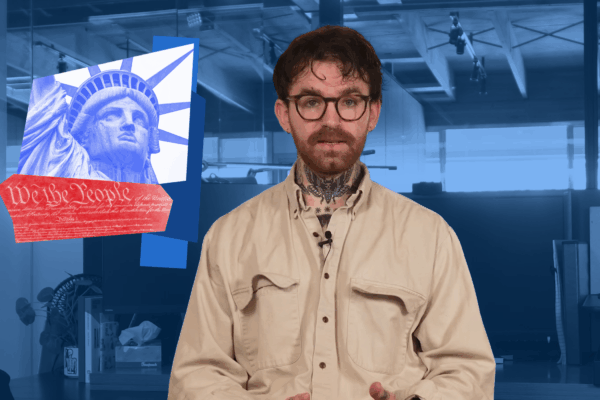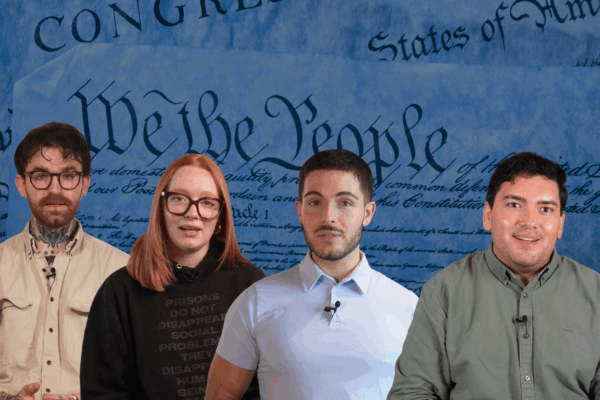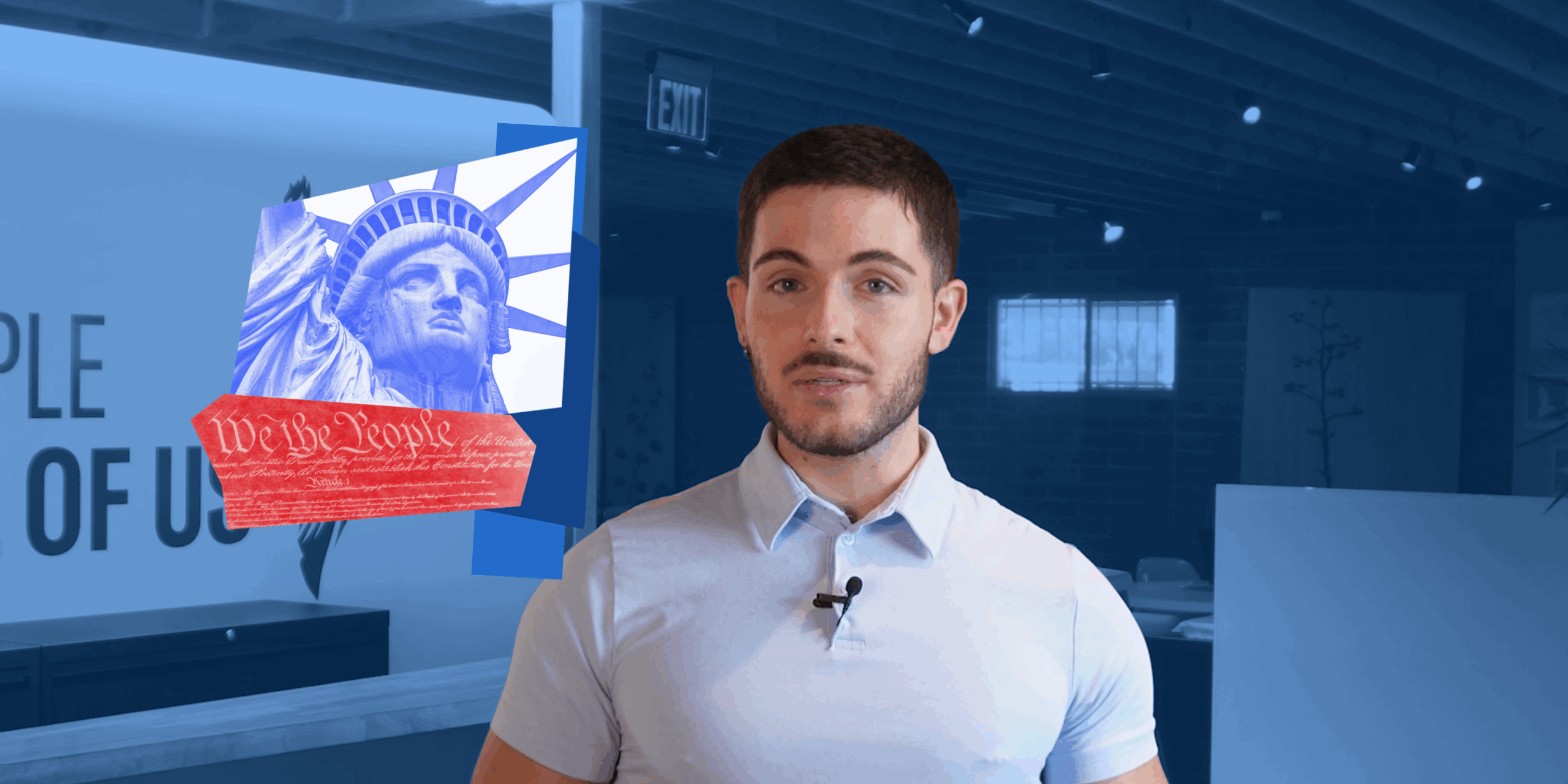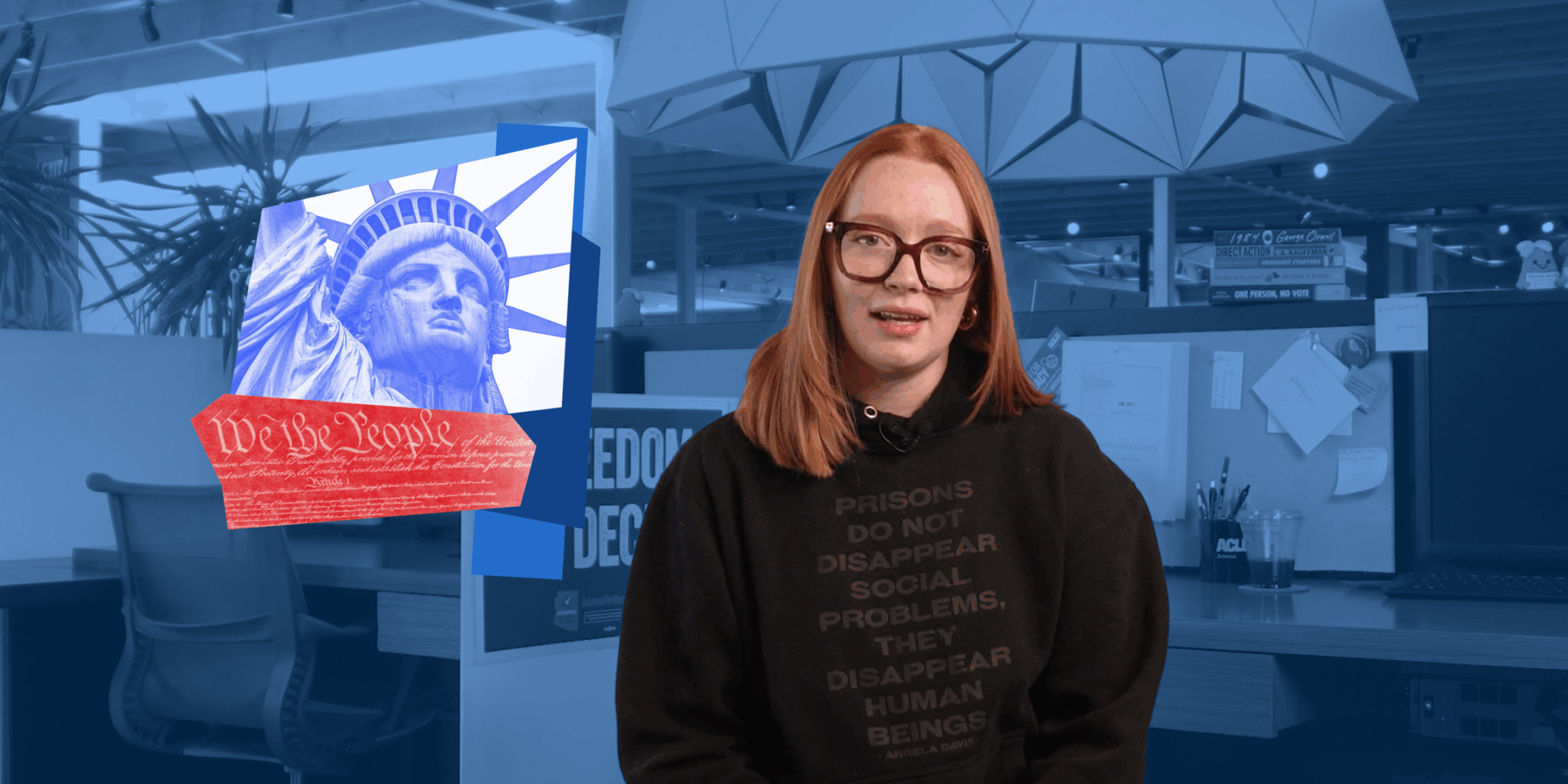Can you be arrested for holding a sign at a rally, marching with a crowd, or speaking out at a city council meeting?
The short answer: you shouldn’t be. But it can be more complicated depending on when, where, and how those actions occur.
Let’s break down what the First Amendment actually says about your right to protest and petition the government, why those rights matter, and how they’re being challenged today.
What does the First Amendment say about protesting and petitioning the government?
The First Amendment to the U.S. Constitution gives you the right to protest, to organize, and to demand change. That includes marching in the streets, testifying at public hearings, and even lobbying your elected officials.
But like many other rights, it comes with limits.
The government can place restrictions on protests, but those restrictions must be:
- Reasonable
- Content-neutral
- Based on “time, place, and manner”
That means a city can require a permit for a large march, limit loudspeakers after 10 p.m., or block protests from obstructing traffic. What they can’t do is allow a protest for one cause while shutting down another simply because they disagree with the message.
Laws that are vague or overly broad give law enforcement too much discretion. When that happens, people who express unpopular opinions are more likely to be targeted. The courts often strike these laws down, but only after someone’s rights have already been violated.
In some cities, protesters are even required to carry liability insurance, a barrier that can be used to shut down demonstrations entirely – whether the organizers can’t afford liability insurance or secure it. Insurance companies have denied coverage based on the topic of the protest, effectively silencing people through red tape.
Even when rules seem neutral, they can have discriminatory impacts. That’s why knowing your rights matters.
The Right to Petition the Government
Petitioning the government isn’t just about online forms or paper signatures. It’s one of the oldest, most powerful democratic tools we have.
You see it when:
- Advocates testify at public hearings
- Communities push ballot initiatives
- Individuals write letters and emails to lawmakers
- Groups unite to advocate to change things that are not working in their communities
Arizona’s Direct Democracy Legacy
Arizona has a long history of people-powered politics. The state’s ballot initiative process allows voters to approve laws directly — bypassing the legislature. Through this, Arizonans have:
- Legalized recreational marijuana
- Enshrined abortion rights in the state constitution
- Raised the minimum wage
This tradition is so strong, it nearly cost Arizona its statehood. President Taft hesitated to grant it because he feared voters had too much power. But direct democracy won and remains a core part of Arizona’s political identity today.
The Right to Protest
Including the freedom to protest in the First Amendment was a bold and self-aware move by the Founders. They knew it would be used against the government itself. And that was the point.
Protest was central to the American Revolution. In 1770, the Boston Massacre began as a protest against British occupation. It ended with five civilians dead and became a symbol of why peaceful dissent must be protected.
Fast-forward to today, protest remains a vital part of American life: from Black Lives Matter, to climate marches, to campus demonstrations. But government response has often been… complicated.
In Arizona, we’ve seen protests for Palestinian rights met with police escalation, surveillance, and new laws. One recent example: Arizona passed a law banning encampments on public university campuses. It’s not a criminal law, but it gives schools more power to crack down on student protest using conduct codes.
We’ve also seen students arrested, suspended, and even have their visas revoked just for speaking out. That growing gap between what the law promises and what’s enforced should alarm us all.
Arizona’s record is shaky. In Puente v. City of Phoenix, a federal appeals court ruled that police use of chemical agents to disperse peaceful protesters wasn’t unconstitutional. The ACLU of Arizona strongly opposed that ruling and will continue fighting against excessive force and unfair crackdowns.
Unpopular Opinions Are Still Protected
Just because a protest makes some people uncomfortable doesn’t mean it can be shut down.
In Edwards v. South Carolina (1963), the Supreme Court ruled that peaceful protesters could not be arrested just because their message caused discomfort. That decision still protects protesters today, even when their views are controversial.
That’s why organizations like the ACLU defend protest rights across the political spectrum, even for causes they may strongly disagree with. The principle is clear: you don’t have to agree with someone to defend their right to speak.
How ACLU of Arizona Defends Your Rights
The ACLU of Arizona works year-round to defend protest and petition rights by:
- Holding regular Know Your Rights trainings about protesting and free speech
- Opposing anti-protest bills and bills that would reduce the power of people-led ballot initiatives
- Working with partners to support protesters when they are targeted by police
- Mobilizing the community when a ballot initiative that advances civil rights and liberties is up for a vote
Because protest isn’t just a right. It’s how change begins.
The right to protest and petition the government isn’t just a legal technicality. It’s a civic duty. It’s how people hold power accountable, how communities demand justice, and how democracy stays alive.
If you haven't already, go watch all five videos in our First Amendment 101 series to learn more about the First Amendment!
You can stay up to date on how to take action in your community by joining our activist network!






